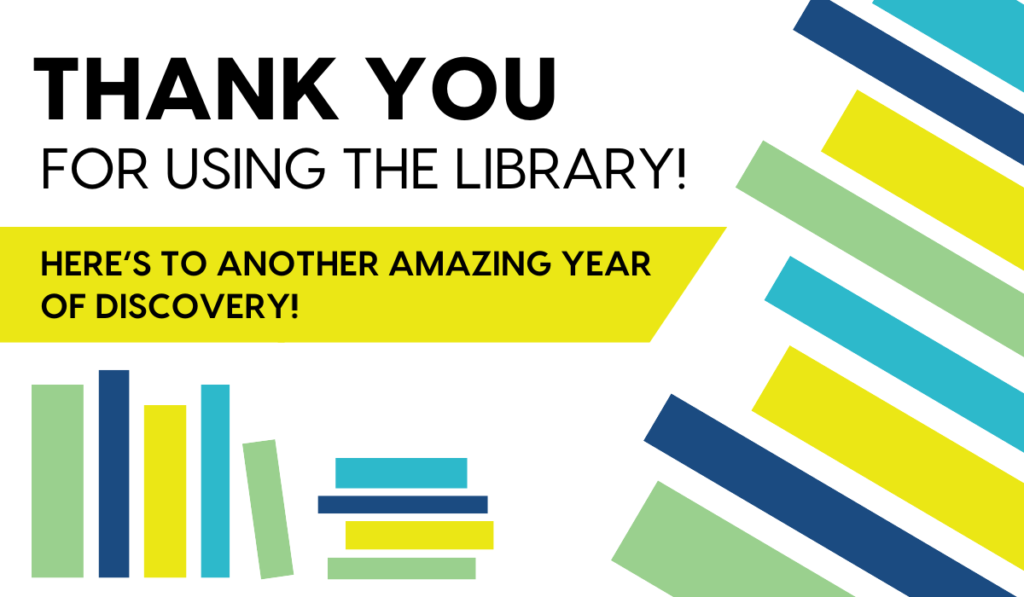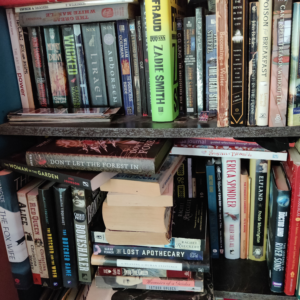APRIL 20, 2025
I didn’t think I was going to write a new post this month. I’d instead planned to publish an article I wrote a while back about spring cleaning. Unfortunately, while that’s usually a great topic for April, there are more important issues to talk about. There are a lot, actually. I don’t feel equipped to discuss most of them at more than a conversational levels. One topic that I do want to discuss loudly however, is libraries.
A couple months ago, I wrote a post about the little things I was and still am doing to preserve my sanity. One tactic I mentioned was pulled straight from the pages of Timothy Snyder’s On Tyranny. It is essential to defend our institutions against fascism if we want them to protect us. I know that I can’t personally fight against every single outrage I see if I want to do it in any meaningful way. Therefore, I had to choose which institutions would be mine. One of the three I chose was libraries.
Our Libraries are Under Attack
On Friday, March 14th, the head of the current US government administration signed an executive order aimed at disbanding the Institute of Museum and Library Services (IMLS) along with several other agencies. IMLS is the federal entity that provides funding for libraries and museums nationwide. Many of these funds are enshrined in law, so it should come as no surprise that many libraries have come to depend on them. This is especially true for smaller local libraries in more rural or otherwise isolated areas.
So what does this mean for libraries? For a lot of them, it’ll mean cutting services. Many of us have come to enjoy programs like Libby and Hoopla that allow us to access library materials straight from our homes and phones. Those services are already disappearing at some branches. Children’s programming is on the chopping block at a lot of locations. Libraries may no longer offer internet access, which could take entire communities offline. Some branches that are already operating on a shoestring budget would have to close altogether. The loss would be devastating to the areas they serve and disproportionately affect those most in need. We cannot allow that to happen.
You Can Help Stop This
Yes, there are professional legal and library experts working to stop this, but they cannot do it alone. They need every ounce of support that they can get. If you believe in what libraries do, now is the time to speak and to act. Whatever your levels of resources and ability may be, there’s a way that you will be able to pitch in. After doing my research and speaking with local librarians, I wrote a list of actions that the average citizen can take in this moment. I’ve listed them in order of investment required.
In addition to what I have written here, you can stay updated on new courses of action at the American Library Association (ALA) website’s page on advocacy.
1. Get Your Library Card
This is the easiest way to support your local library. Funding for libraries is largely determined by their numbers. The more patrons they have, and the more active those patrons are, the more funding the library receives. If you don’t already have a library card, now is the time to get one. If your kid is using your membership, perhaps it’s time to get them their own.
Getting a card is a quick and easy process. A lot of libraries provide the option to sign up via their website. You can be a cardholder at many different libraries, but some libraries will require you to be a town resident to make use of certain services. If that’s the case, you may need to go in person to provide proof of address to upgrade your card.
2. Use Library Services – As Many As You Can, As Often As You Can
Traffic and usage also factor in heavily in library funding. A lot of people don’t realize how much their local library actually offers. It’s a lot more than a book collection and a couple community computers. In this digital age, libraries are providing you services without you even leaving your house. Getting a card grants you free subscriptions for media services that include audiobooks, news, video and music streaming services, eBooks, video gaming, language learning, scholarly databases, and more. Some libraries even offer home delivery of physical materials if you can’t get there to pick up books or periodicals.







When you do show up in person, that increases their numbers too, and it gives you access to an even wider array of services. Most libraries also have a “Library of Things” that patrons may either make use of on-site or borrow for home use. It includes everything from household construction tools like hammers and power drills to 3D printers and Cricut machines. They have entire crafting kits with all necessary paraphernalia. My neurotype has me picking up new hobbies every time I wash my hair, and that option saves people like me untold amounts of money.
There are also seed banks and plant cuttings you can take home to keep. You can borrow gaming consoles or DVD players with the games and movies to go with them. Mine recently advertised their VHS digitizer for anyone who still has those lying around like I do. They mentioned that if you weren’t ready to take that step, you could borrow a VCR to watch them instead. They offer free or steeply discounted tickets for local museums and attractions. There are scanning, printing, and copying services. This is all before getting into programming like tutors, storytime, or job-seeking seminars. The list goes on.
3. Give What You Can
This can mean money or it can mean time. Direct donation to your library of choice is an impactful way to support them, as is volunteering. Libraries usually have a “Friends” organization that collaborates to help library staff meet the needs of the institution and patrons. To find yours, you can do a web search for “friends of [your library’s name]” or ask your librarian.
4. Contact Your Representatives
Our elected representatives are the ones with the most power to remedy this situation. They have that power because We The People voted for them. Their job in return is to represent us. Those in Congress need to hear about what matters to their constituents. If libraries matter to you, reach out to your representatives to let them know. You can find the names and contact info you’ll need on the official website for the US Congress using their handy representative lookup tool.
5. Get Involved With The Board of Trustees
Libraries are run by a Board of Trustees. They either serve to advise a city-appointed manager/director or make the executive decisions amongst themselves. Trustee responsibilities include developing policy, setting goals, and acting as liaison between library administration and government officials.
Your local library’s Board of Trustees should be having open meetings on a monthly basis. You can become a part of these meetings and have your voice heard. You can show up for many meetings with no other credentials than as a library patron. If you’ve decided to join your local library’s Friends, you may already know that a Friends liaison is required to be present in these meetings.
If it suits your life and you have the necessary level of investment, you can run for the Board of Trustees yourself. Because this is an elected position, it would require campaigning followed by an ongoing level of commitment. If that’s a level of time and effort you’re willing to give to the cause, becoming a member is a fantastic and extremely influential way to contribute.

Image provided by my local library
Whatever You Do, Get Loud for Libraries
Any type and amount of support you give to libraries in this moment will make a difference. Pursue whichever route falls within your current ability. I know those of us who care deeply about the world are already stretched thin. One final important action that we can all take is to spread the word. This is the one time your librarian won’t ask you to keep quiet.
Public access to information and crucial services are under threat at a national level. We need to muster a response at a national level as well. Make sure those around you know what is happening, and share the steps they can undertake to help.
To learn more and to stay updated, also check out the ALA website’s advocacy page




